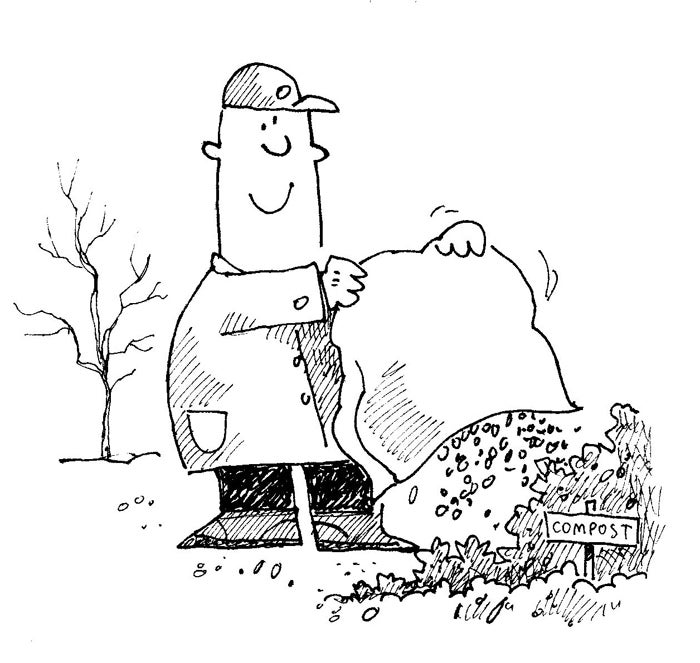Darrell Blackwelder: Composting is a win-win process
Published 12:00 am Sunday, November 17, 2019

- Composting is an excellent way to use up kitchen and yard waste and also help your soil. Art by Mark Brincefield for the Salisbury Post.
Composting is an excellent way to eliminate spent leaves and help the environment. Composting also conserves moisture and improves the physical properties of the soil. Composting is the decomposition of many other organic materials including: leaves, kitchen scraps, grass clippings spent vegetable plants and other organic material.
Avoid composting pine needles. Pine needles break down very slowly as do citrus rinds, corn cobs and pecan shells. Avoid adding meat scraps and greasy foods as they attract unwanted animals such as skunks, mice and opossums.
Spent leaves and other organic material, along with soil and fertilizer are piled to form a large compost “sandwich.” A layer of leaves 10 inches or more is followed by an inch of soil and a sprinkling of fertilizer. Microbes (soil bacteria) within the soil accelerate the decomposition of leaves and other material.
Fertilizer supplies nitrogen which feeds the microbes. Shredding large leaves such as maple and oaks through a mower expedites the decomposition process.
Composting bins aren’t aesthetically pleasing, therefore it is best to locate compost piles or bins in low visibility areas, usually near the family vegetable garden. Turning compost piles occasionally should prevent unpleasant odors and hasten decomposition. Turning also exposes unwanted weed seeds, insects and pathogens to high temperatures.
The center of an actively decomposing pile should reach 150-160 degrees to complete the process.
Go to https://content.ces.ncsu.edu/backyard-composting-of-yard-garden-and-food-discards for more detailed information.
Darrell Blackwelder deblackw@ncsu.edu is the retired horticulture agent and director with the North Carolina Cooperative Extension Service in Rowan County.


